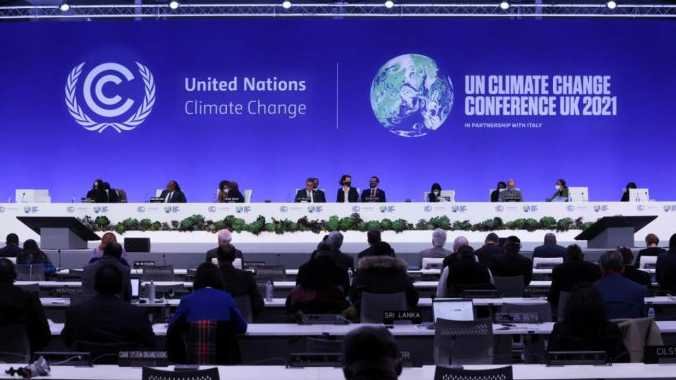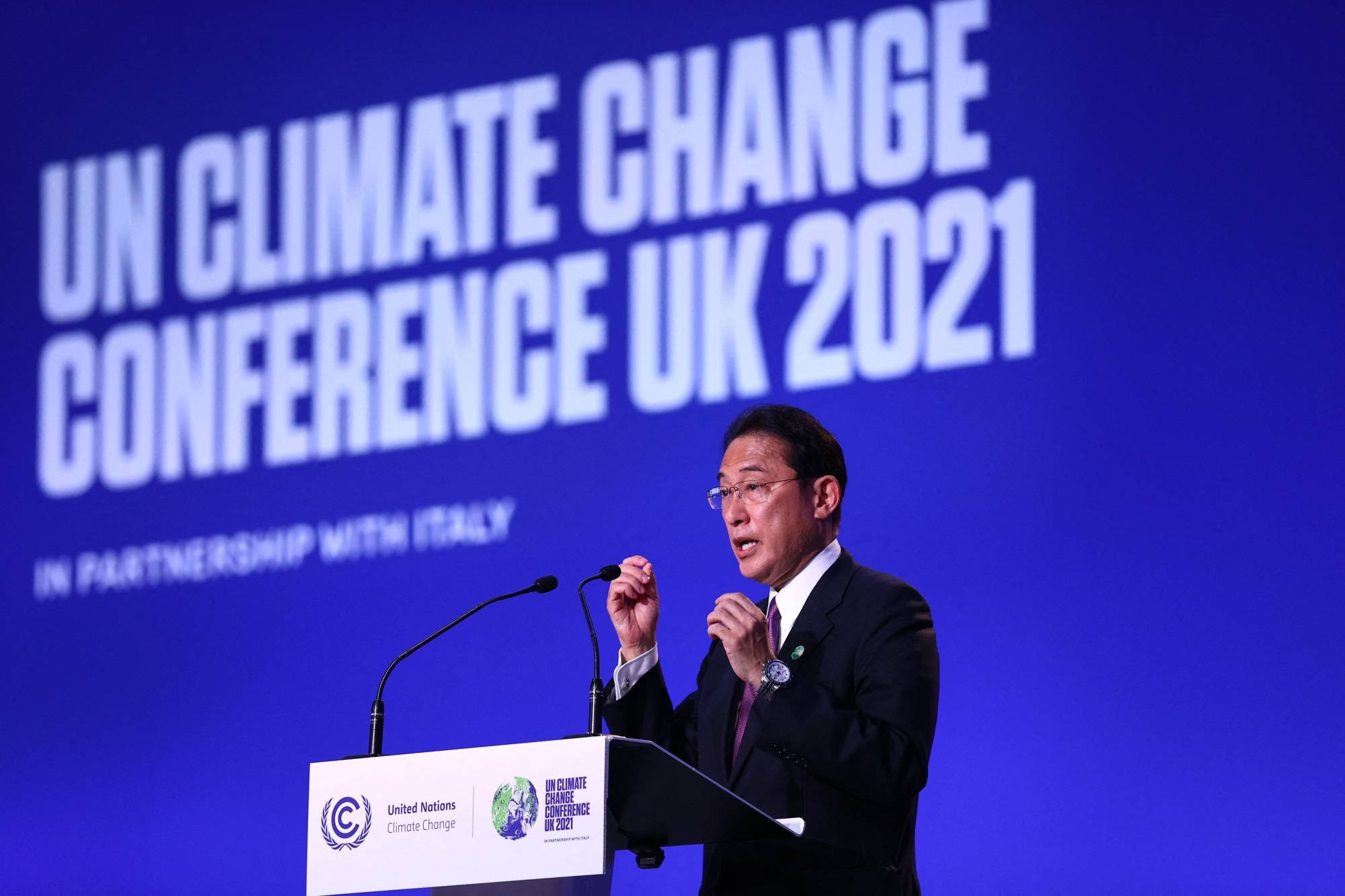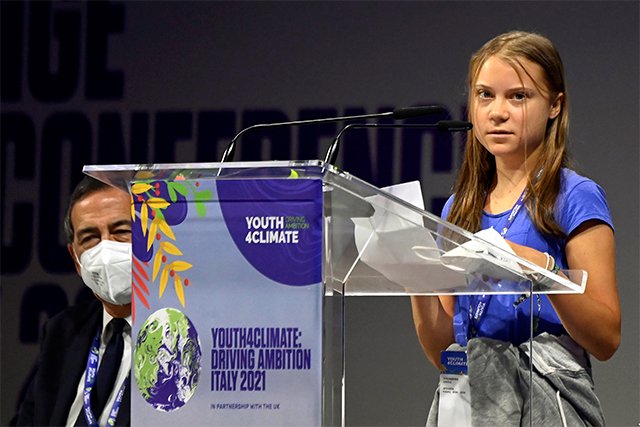UNFCCC COP26: Glasgow Climate Pact - Updates and Outcomes
After two weeks of rigorous negotiations, the Parties to the UNFCCC COP26 have agreed on the following:
The 26th United Nations Climate Change Conference (COP26) opens in Glasgow, Scotland, on August 31, 2021. [Photo from CGTN]
SCIENCE
Parties recognize the best available science for effective climate action and policymaking and express alarm and utmost concern that human activities have caused around 1.1 degrees Celsius of global warming and its impacts are already felt in every region.
With this, the parties stress the urgency of enhancing mitigation, adaptation, and finance ambitions to address the gaps between the current efforts and pathways in pursuit of the ultimate objective of the Convention and its long-term global goal.
ADAPTATION FINANCE
Developed country Parties are urged to scale up their provisions of climate finance, technology transfer, and capacity building for adaptation to respond to the needs of developing countries, including the formulation and implementation of national adaptation plans.
The private sector, multilateral development banks, and other financial institutions are called upon to enhance finance mobilization to meet the resources needed for climate adaptation.
The private sector is also encouraged to explore innovative approaches and instruments to mobilize finance for adaptation.
MITIGATION
Rapid, deep, and sustained reductions of greenhouse gas emissions together with reduced global carbon dioxide emissions by 45% by 2030 is needed to limit global warming to 1.5 °C by 2100.
Parties are called upon to accelerate efforts towards the phase-out of unabated coal power and inefficient fossil fuel subsidies and recognize the need for support towards a just transition.
FINANCE, TECHNOLOGY TRANSFER, AND CAPACITY BUILDING FOR MITIGATION AND ADAPTATION
Prime Minister Fumio Kishida pledges USD10 billion to support Asia’s zero-emission path. [Photo from The Japan Times]
Developed country Parties are urged to provide enhanced support, including financial resources, technology transfer, and capacity building, to assist developing country Parties in both mitigation and adaptation
Parties note with deep regret that the goal of developed countries to jointly mobilize USD100 billion per year by 2020 has not yet been met.
Relevant multilateral institutions are encouraged to consider how vulnerability to the adverse effects of climate change could be reflected in the provision and mobilization of concessional financial resources.
Operating entities of the Financial Mechanism, multilateral development banks, and other financial institutions are urged to scale-up investments in climate action and the continued increase in the scale and effectiveness of climate finance from all sources globally.
LOSS AND DAMAGE
Developed countries, United Nations bodies, intergovernmental organizations, non-government organizations, and the private sector, are urged to provide enhanced and additional support for activities addressing loss and damage associated with climate change impacts
Parties welcome the operationalization of the Santiago Network for addressing the loss and damage brought about by climate change, including the agreement on its function and process for further developing its institutional arrangements.
IMPLEMENTATION
Parties are encouraged to take an integrated approach to protect, conserve, restore ecosystems to deliver crucial services, act as sinks and reservoirs of greenhouse gases, reduce vulnerability to climate change impacts, and support sustainable livelihoods.
The need to ensure just transition that promotes sustainable development, eradication of poverty, creation of decent works and quality jobs, and provision of support to developing country Parties is recognized.
Swedish climate activist Greta Thunberg looks on as she speaks during the Youth4Climate pre-COP26 conference in Milan, Italy, September 28, 2021. [Photo from interaksyon]
COLLABORATION
The role of the youth is emphasized, and Parties and stakeholders are urged to ensure meaningful youth participation and representation in multilateral, national, and local decision-making processes, including under the Convention and the Paris Agreement.
The important role of indigenous peoples’ knowledge and experience in addressing climate change is emphasized and Parties are urged to actively involve indigenous peoples in implementing climate actions.
“Disappointing closure of @COP26 as for the single resistance and opposition of India to phase out coal and eliminate subsidies to fossil fuels. Sad. But the Paris Agreement and its process is stronger than deniers and resisters and will soon overcome them!!!”
“It’s not good enough, and COP26 has merely succeeded in candy-coating the appalling lack of concrete actions. Communities at the frontline of the climate crisis, including our youth, should be deeply concerned with this poor excuse of an outcome.”
“We can now say with credibility that we have kept 1.5 degrees alive. But, its pulse is weak and it will only survive if we keep our promises and translate commitments into rapid action. I am grateful to the UNFCCC for working with us to deliver a successful COP26.”
“They even succeeded at watering down the blah, blah, blah which is quite an achievement. There is still no guarantee that we will reach the Paris Agreement.
”You can still interpret [the Glasgow pact] in many different ways - we can still expand fossil fuel infrastructure, we can increase the global emissions. It’s very, very vague.”





